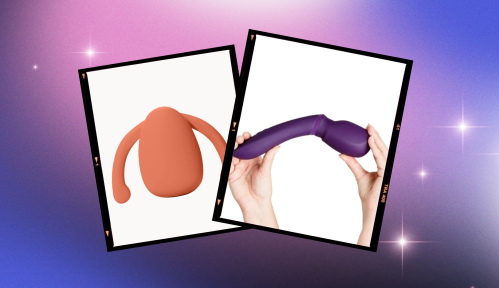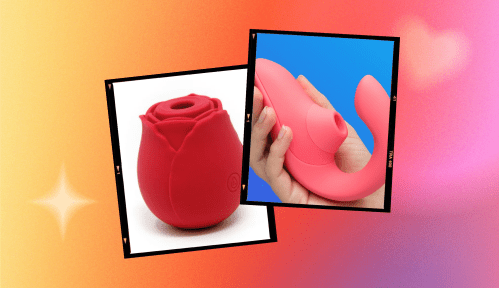After working for years on two major book projects, librarian and editor Ray P. felt a sense of relief when they were coming to an end. The work was over and he could finally relax. But it wasn’t long until that sense of relief turned into uneasiness. “I felt restless, a bit depressed, and curious as to what I would be working on next to keep feeling productive or busy,” he says.
I felt similarly after publishing my first book last year. After years of working on it, I felt a rush of satisfaction when I walked into a Barnes & Noble and saw my book on the shelf. But then, as I looked at all the blank space in my once-packed schedule, I thought, “Now what?” I didn’t feel relaxed and free; I felt lost and unaccomplished, despite seeing the fruits of my labor right in front of me in black and white.
This, I soon found out, is pretty normal (phew!). Some people experience a lackluster feeling of emptiness after accomplishing a major, long-term goal. Author Kelsey Ramsden calls this unpleasant lack of fulfillment after reaching your milestone a “success hangover.”
But it’s not all bad. Once you’ve identified those post-accomplishment blues, you can learn to use them to your advantage.
Why we feel blah after crossing the finish line
In her book, Ramsden argues that ambitious people often prefer the race over the finish line. She writes that “it’s in the discomfort of pursuit that the ambitious feel most comfortable.” According to Ramsden, high-achievers feel most fulfilled when they’re busy and challenged. Without a clear goal to work toward, your day-to-day life is completely upended, she argues; there’s a void—especially if that goal was something you worked on for years and years.
“The downtime is a shock to [ambitious people],” explains Jesse Matthews, PsyD, a licensed clinical psychologist in Chester Springs, Pennsylvania. “They’ve spent a lot of time and energy on the goal and don’t know what to do next. Some people are at their best when they’re focused on something, so they feel lost without that structure.” The irony here is that downtime might be exactly what you need. That final push to the finish line can be grueling, and lead you to burn out. But the idea of some R&R can make ambitious people feel guilty or bad about themselves, Dr. Matthews says.
A clear to-do list isn’t the only reason you might feel let down. “Maybe reaching the goal doesn’t prove to be all you thought it would be,” Dr. Matthews says. Maybe you thought achieving it would lead to something magical; that, suddenly, your life would be completely different. Mix that feeling with burnout and exhaustion, and it’s easy to see why you’d feel drained, rather than elated, after earning that gold star.
That seems to be what happened to Michelle, a musician and writer with a band and blog called Savvy History. Michelle was working on her fifth album and corresponding book, learning new techniques and playing bigger shows, but the work was taking a toll on her mental health. “And by the time the album came out, it felt anti-climatic. I was already thinking about future projects, I had no energy to talk positively about what I had accomplished, and the album had simply been a checklist to get through,” she says.
Whether it’s exhaustion or emptiness (or a bit of both), pinpointing why you feel lackluster after reaching a goal is the first step in figuring out how to manage it. From there, a few things can help you overcome the slump and get back to a place where you feel excited about your work and proud of your accomplishments.
How to beat the blues
1. Enjoy the plateau
When I was in my slump, I became obsessed with searching for the next project. I grasped onto new ventures—public speaking, new book ideas, podcasting—just for the sake of being occupied. It didn’t matter if I was passionate or excited about the opportunities coming my way, I just wanted to work on something. But I wasn’t in the right mindset to fully commit to those activities because I was completely spent from years of working on my book. As a result, I hated every new thing I tried.
In her book, Ramsden says successful people are very uncomfortable with living in a plateau state—they like to climb. Ray can attest to this: “I’m learning to accept what I’ve done already…and not let boredom or restlessness get to me,” he says. “However, that’s been a really hard process because I’ve been going at a hundred miles per hour and I want to jump into something new to work on.” But spending time at a career plateau (even if it makes you feel antsy!), Ramsden writes, allows you to regroup, recharge, and figure out what you want to work on next. “It takes a lot out of you to work toward a big goal,” Dr. Matthews explains. “A break is beneficial to recovering and getting ready for what comes next.” Without one, you risk burning out.
2. Try new things
Once you’ve taken the break you need, try exploring new possibilities that are slightly outside of your comfort zone. Research, like this recent Yale study, suggests that doing the same old thing keeps us from learning and reduces brain activity. Introducing a bit of uncertainty and novelty into your routine can change that.
Julia Cameron, author of The Artist’s Way, suggests what she calls Artist Dates: “a once-weekly, festive, solo expedition to explore something that interests you.” Cameron writes, “The Artist Date need not be overtly ‘artistic’—think mischief more than mastery. Artist Dates fire up the imagination. They spark whimsy. They encourage play. Since art is about the play of ideas, they feed our creative work by replenishing our inner well of images and inspiration. When choosing an Artist Date, it is good to ask yourself, ‘what sounds fun?’ — and then allow yourself to try it.” Take a photography class. Go to a random networking event. New activities will feed your curiosity and your ambition, and they’ll also provide a way to test new projects before you go all in.
Ambitious people also have a tendency to work a lot, and Cameron argues that workaholism can steal from your creativity. You become so preoccupied with how good it feels to get things done that you stop doing things that make you feel creative and fulfilled because those things don’t feel immediately productive. Artist Dates are a way to reconnect with the creative side of yourself. Take a break from work to go explore something new. Take a photography class. Sign up for a networking event. Make a list of possibilities, then schedule time to do them.
Michelle says she coped with her own post-project depression by going back to college, remodeling a house with her partner, and reaching out to her local community. “It’s healthy for people with narrow interests, like me, to get out of their bubble. Being friends with people different than you also leads to new discoveries,” she says.
3. Identify your “core desires”
It’s easy to just jump into the next big thing if you’re the kind of person who craves structure, but again, doing something just for the sake of working can leave you feeling worse. “Think about why you’re doing what you’re doing,” Dr. Matthews says.
It can help to identify what author Danielle LaPorte calls your “core desires.” In her book, The Desire Map, LaPorte argues for doing work that makes you feel happy and fulfilled on a day-to-day basis, rather than trying to achieve external metrics of success.
For example, if being creative makes you feel fulfilled (which would mean creativity is one of your core desires, as LaPorte calls them), you should set career goals that allow you to be creative in your work. Maybe instead of trying to get promoted to event coordinator in your current job (a job that would likely involve juggling logistics), you focus on a role that lets you create and build things day to day, like creative events director. When you know what makes you happy every day, you can plan your goals accordingly. That way, you place less emphasis on reaching an abstract finish line, and instead find fulfillment every step of the way.
FYI, burnout is now recognized by the WHO as a medical condition. Here’s the best way to combat it, according to your Myers-Briggs personality type.
Sign Up for Our Daily Newsletter
Get all the latest in wellness, trends, food, fitness, beauty, and more delivered right to your inbox.
Got it, you've been added to our email list.










